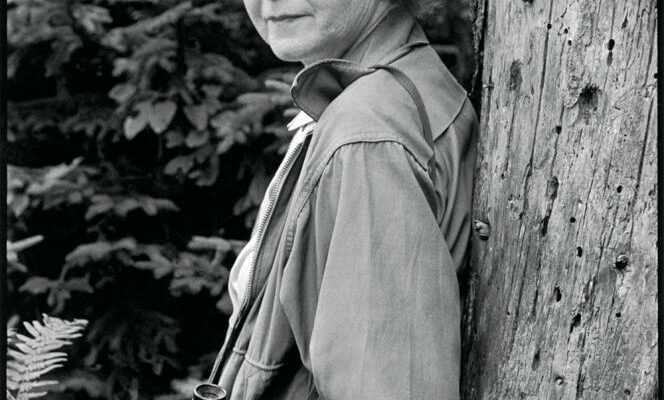When he founded, in 2008, the Wildproject editions, an independent house dedicated to the intellectual history of ecology, Baptiste Lanaspeze was very surprised to discover that a founding book was free of rights. Released in 1962 in the United States, SilentSpring (Houghton Mifflin), an investigation into the ravages of pesticides, and in particular DDT, carried out by an American biologist, Rachel Carson, is considered to be the work that founded political ecology.
” silent spring came like a cry in the desert, an absolutely heartfelt, solidly substantiated and brilliantly written plea that changed the course of history,” writes Al Gore in his preface to the 1994 edition. In May, Wildproject publishes, on the occasion of the 60th anniversary of the book, an illustrated edition. In more than half a century, “the legend of the book has only grown”, said Baptiste Lanaspeze.
When appears silent spring, Rachel Carson is 54 years old. She began her career as a marine biologist and has already written three bestsellers, including This sea that surrounds us (Stock, 1958; The Sea Around Us, Oxford university Press, 1951) which won the National Book Award, one of the most prestigious literary honors in the United States.
Ten years of investigation
silent spring is the fruit of a ten-year meticulous investigation. She exposes the damage of insecticides that she calls “biocides”. The book opens with a sort of fable: “Once upon a time there was a small town in the heart of America where all life seemed to live in harmony with its surroundings. » But harmony will give way to concern. “A strange evil crept into the land, and everything began to change (…) There was silence in the air. The birds, for example – where had they gone? »
“Ecology was a science until Rachel Carson, who transformed it into a political and social issue. » Baptiste Lanaspeze, publisher
For years, observers have noted an alarming decline in the population of birds – and in particular the sea eagle, the bald eagle, the national symbol of the United States. Rachel Carson will prove it: pesticides contaminate the entire food chain. Far from odes to wild nature as a refuge, as was Walden or Life in the Woods, by Henry David Thoreau, silent spring demonstrates the interconnectedness of all living things. By poisoning nature, humanity poisons itself.
It is a theoretical break, a reversal of the vision of progress which was based on the exploitation of nature and the mastery of science. While the triumphant modernity of the “glorious thirty” let man deploy a destructive hubris on a nature that he thinks is at his service, Rachel Carson’s message is dissonant. “One of the central lessons of silent spring was that not everything that qualified as progress was necessarily good, remembers the author of The Scarlet Maid, Margaret Atwood, in the Guardian. It’s hard to imagine the shock this caused. »
You have 44.37% of this article left to read. The following is for subscribers only.
